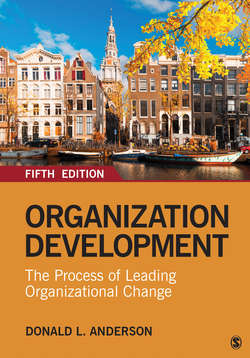Читать книгу Organization Development - Donald L. Anderson - Страница 47
На сайте Литреса книга снята с продажи.
Chapter Three Core Values and Ethics of Organization Development
ОглавлениеAs we discussed in the previous chapter, organization development (OD) consists of more than just the application of surveys and tools or facilitating meetings, though these are all general activities that can fall within the scope of an OD engagement. As each client application of OD principles and practices is somewhat unique, OD is not the rigid following of a systematic procedure. It involves the kinds of assessments, dialogues, and decisions that we cover in detail throughout this book. Consequently, developing OD skills is less about learning a standard toolkit and more about internalizing the factors that influence an OD practitioner’s decisions. Those decisions are guided by a set of values and ethical beliefs about how organizations should be run, how people should be treated, and how organizational change should be managed. OD values and ethics help to direct choices about what client engagements to accept, what data gathering strategy to employ, how feedback to the client should be managed, what interventions to select, and how the intervention should be structured. In this chapter, we will define the core values held by OD practitioners and describe the ethical beliefs that influence their choices and decisions.
The values that have been adopted by OD practitioners have been formed and shaped by its history, so many of the pronouncements of OD values that you will see in this chapter will resonate with what you read in Chapter 2. The work of MacGregor, Likert, and others resulted in a series of statements about the best ways to manage people in organizations, and over time these have been internalized and shaped into a series of explicit values for the field of OD.
